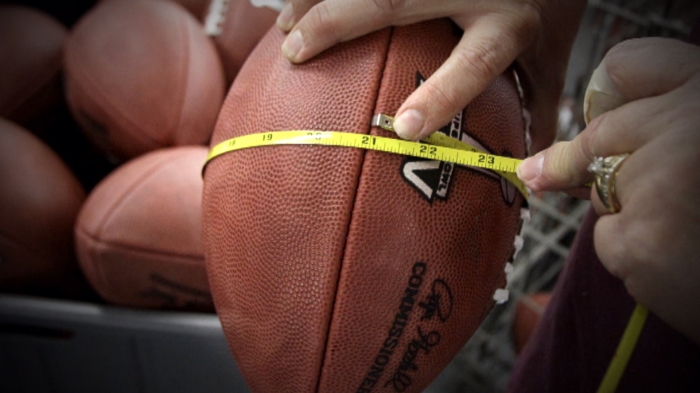The NFL clearly loves scandals. American Football’s pantheon appears to thrive off the infamy of its improprieties and missteps. It is stunning that a corporation with financial access to the best lawyers, publicists, and advisors in the world can have a punishment policy that seems to equate domestic abuse and deflating game balls.
Amidst the bluster it cannot be forgotten that the act of deflating the game balls is a serious issue and worthy of punishment. In terms of the wider context, it pales in comparison with the accounts of domestic abuse committed by Ray Rice and Greg Hardy. Nonetheless, tampering with equipment encourages the breaking of other rules and damages the integrity of the sport. Most damningly in the case of the Patriots the incident left the least powerful members of their franchise, the equipment managers Jim McNally and John Jastremski at the whims of the higher-ups.
On the field, the NFL must ensure that all rules and equipment are respected; the league is becoming increasingly regulated, whether on the field with player safety and concussions or off the field with player fines and suspensions. Additionally it must encourage a culture of compliance to the rule book now more than ever. If teams are allowed to disregard certain rules on the field, nothing will push them to adhere to other rules protecting player health (mandatory concussion testing after big hits), or suspending players for criminal activity. To trivialize one rule in the pursuit of winning or gamesmanship is to trivialize other necessary rules in service of the same end. In such a morally fraught chapter of the league’s 49 year history, it cannot afford to encourage an ‘anything goes’ mentality as the norm.
This issue also highlights problems with the NFL’s game-day officiating. An argument already exists that the NFL should employ referees full-time. Now there is an argument that the NFL should provide the game day footballs. Why was New England, or any franchise for that matter, in a situation that so obviously lent itself to a conflict of interest? The high-pressure (or in this case, low pressure) nature of professional sports encourages teams to find the smallest of competitive edges. That attitude can easily spill over into rule breaking. The NFL has to take more control of the equipment. All of the confusion and farce surrounding McNally’s nickname “the deflator” could have been avoided. If the NFL had an organised system of measuring the inflation of game balls, it would be very clear whether the balls were tampered with or not. The Wells Report could have been compiled on firmer ground. You don’t want fans to lose faith in the on-field action because a perception of rule-breaking has developed, don’t give teams the opportunity to cheat. In this case the integrity of the on field action is very much at stake.
The most serious, and underreported, aspect of Deflategate is that the Patriots’ equipment managers were suspended for a year without pay. Yes it is true that there is no firm evidence that Tom Brady knew about the deflation. It is, however, also highly unlikely that McNally was cavalierly deflating balls of his own accord. There is a precedent of quarterbacks asking for underinflated game balls: Tampa Bay quarterback Brad Johnson paid $7,500 for just that in 2001. As ex-commissioner Paul Tagliabue explained in response to Bountygate five years ago, “Players accept that they work for coaches” and will often do what coaches ask of them, even if they don’t necessarily agree with the decision. This power no doubt extends over equipment managers. Deflategate left the least powerful the most vulnerable. And that is the most damaging and serious consequence of the Deflategate episode.







